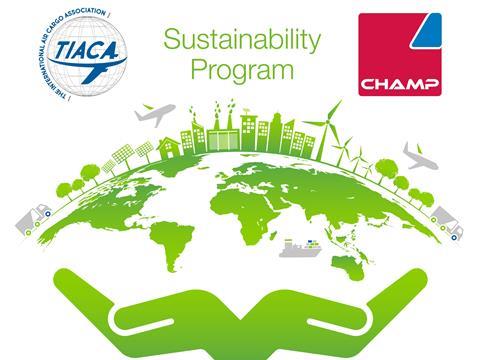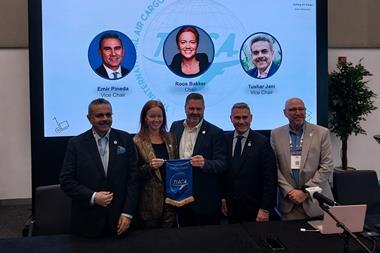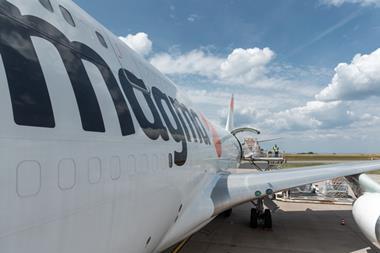
The International Air Cargo Association (TIACA) is establishing a new working group to define and deliver a sustainability programme for the air cargo industry.
To support the initiative, TIACA has signed a long-term partnership agreement with CHAMP Cargosystems.
One of the highlights of the project is launching a yearly Air Cargo Sustainability Award, starting at TIACA's Executive Summit (ES) taking place in November in Budapest, Hungary.
TIACA and CHAMP will also work with members, partners, and industry representatives to establish a common vision on sustainability and create a sustainability committee, which will build the Program and monitor delivery of the initiatives.
The association has pledged to organise at least one panel discussion or presentation focused on sustainability at each of its events.
"Sustainable development means being able to meet the business needs of the present without compromising the ability of future generations to find solutions to their own commercial challenges,” stated Steven Polmans, incoming Chairman of TIACA and Director Cargo and Logistics at Brussels Airport Company
He added: “In the aviation and air cargo logistics sector, in common with all parts of our society, sustainability has an increasingly important role to play.
"The development of long-term strategies and investment to achieve a sustainable industry is key to guaranteeing the future of air cargo and TIACA, as the only organisation representing all sectors of the supply chain, is in a unique position to drive that development.”
“CHAMP Cargosystems is extremely pleased to establish this sustainable initiative in partnership with TIACA,” said Arnaud Lambert, Chief Executive Officer (CEO) at CHAMP Cargosystems.
“Our commitment stands to jointly create a program that will have a positive global outcome − first for society and then for business. Sustainability is a subject often considered in the development of our IT solutions like CO2 emission calculator solutions, integration, or paper free solutions for the air cargo business but is definitely not limited to this only.
"We are looking forward to defining and implementing strategies for achieving positive and substantial results in Optimizing our Environmental Footprint (OEF) and minimizing logistics-related emissions or waste, for example.
"All this can only be done in synergetic collaboration with all industry players. Ultimately, each of us is responsible for tomorrow’s world and we are accountable for the future state of the Earth − not only for us, but also for those who will inherit it.”









